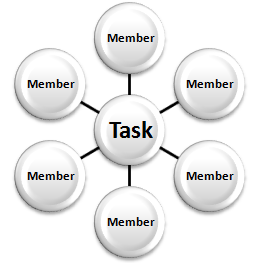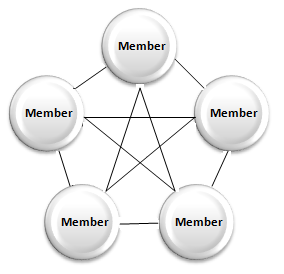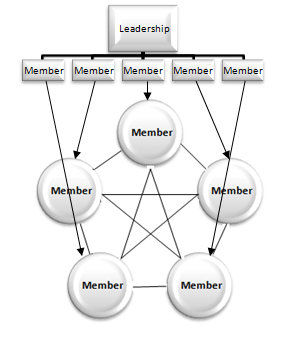Types of Teams
There are three different types of teams: problem-solving teams, self-directed work teams, and functional teams.
Problem-solving teams involve sharing ideas and suggestions amongst members to a great extend. This type of team is used “temporarily in order to bring knowledgeable employees together to tackle a specific problem” (Pride et al., 2011, p.296).
Self-directed work teams, on the other hand, represent teams that have been assigned tasks coupled with authority and skills to manage themselves. Members belonging to such type of teams found to be highly motivated and satisfied due to increased level of task variety and control over the job.
An alternative variation of team is a functional team that is formed from employees belonging more or less to the same hierarchal level but, employed in different departments of the company. The main advantage associated with this specific team format relates to the fact that employees from various organisational departments offer varying perspectives on the issue, so that problems can be resolved with an increased level of efficiency (Steers and Nardon, 2008).
References
Pride, W.M, Hughes, R.J & Kapoor, J.R. (2011) “Business”, 11th edition, Cengage Learning
Steers, R.M. & Nardon, L. (2008). “Managing in the Global Economy”, ME Sharpe



